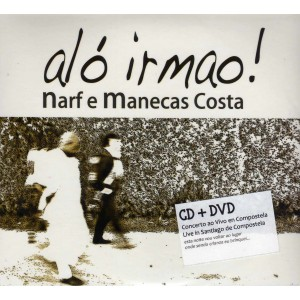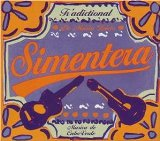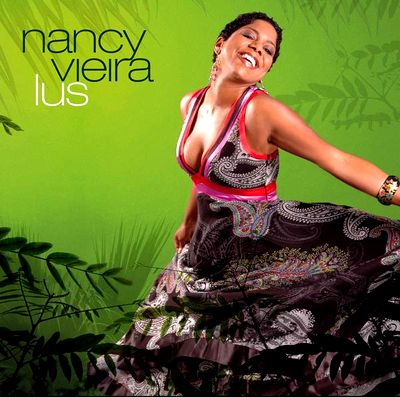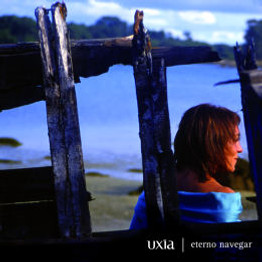“…I’ve heard Clave Bantu some six times from start to finish, including on my bus trip from New York to Washington where I listened to it at high volume and felt as if I was attending an intimate live music performance. I’ve let it marinate in my ear drums for some time now. One of the first things that came to mind was the thought: 'so now we have our own Sara Tavares.' It’s beautiful, very much so, and it’s also very much yours. It has your stamp on it. I think you’ve found your voice. Now I can listen to a song and say, ah, this is Aline. Compared with other CDs you’ve done (A Minha Embala), this one is in a different league. The production is well done and the sound is more professional. Some of your earlier songs are dressed differently on this album…Primeiro Mundo is very nice, emotional. It’s currently my favorite. I preferred the original Babel in some parts. Oriente is another one I love, as is Ceu da tua Boca…
Anyways, I’m listening to the album again now…”
When I interviewed Aline back in the earlier days of this blog she had mentioned that she wasn’t planning on ever releasing an album. I’m extremely pleased she has changed her mind, and I’m sure I share that sentiment with her many fans, in Angola, Brazil, Portugal, Spain, Argentina, and elsewhere. I’m also very proud of the way she did it, keeping full control over all aspects of the album production and doing it all on her own terms, independently. The end product is an album that is every inch Aline, in substance and in feeling.
Clave Bantu has 11 tracks; below you’ll find some of the album’s standout tracks, namely Primeiro Mundo, Oriente and Amanheceu. Both Jose Eduardo Agualusa and Ondjaki, two heavyweights of Angolan literature, contributed to two songs; Amanheceu, featured below, was written by Ondjaki (Agualusa wrote ‘O Ceu da Tua Boca’). The rest of the album was written by Aline, who proves not only to be an excellent songstress but also a wordsmith in the making. Jose Manuel Díaz, from Cuba, and Carlos Freire, from Galicia, contributed on bass and percussion, respectively. Listen to the tracks below to get a sampling of the album’s unique blend of acoustic afro-jazz with bossa influences.
Primeiro Mundo
Oriente
Amanheceu
Creio não existir, no panorama musical angolano, uma cantora tal como a Aline Frazão. Quando ligamos a rádio em Luanda, ou Lubango, ou Benguela, é difícil escutarmos música como esta, feita mesmo por uma filha cá de casa. É uma das vozes mais únicas da banda e o seu primeiro álbum à solo, Clave Bantu, só veio cimentar a sua posição como um dos talentos angolanos mais emocionates destes últimos tempos. Algumas semans atrás ela perguntou-me como estava a gostar do álbum. Foi essa a minha resposta por email, escrita ao som do disco em questão:
“Epa, já ouvi a Clave Bantu umas seis vezes do princípio ao fim, inclusive em alto e bom som na minha viagem de autocarro de New York para Washington, como se fosse um concerto intimista. Já o deixei temperar nos meus tímpanos um bom bocado. Das primeiras coisas que me veio a cabeça foi o pensamento: 'afinal já temos a nossa Sara Tavares.' Está lindo, lindo mesmo, e com um som e um 'feeling' muito teu, uma forma de cantar muito tua. Já tens a tua marca, creio. Já posso ouvir uma música e dizer, ah esta é a Aline. Comparando com as outras obras que lançaste (A minha embala) este está noutro campeonato. Os arranjos estão bem feitos e o som é profissional. Algumas das músicas que já conheço têm aqui uma outra roupagem...Primeiro Mundo está muito nice, emotivo. Neste momento é a minha preferida. Com a Babel talvez preferia a versão mais antiga em algumas partes. Oriente é outra das que amei, bem como Ceu da tua boca.
Enfim, estou a tocar o álbum outra vez agora...”
Quando entrevistei a Aline nos primeiros tempos deste blogue, ela tinha mencionado que não tencionava lançar um álbum próprio. Tal como eu, os seus fãs em Angola, Brasil, Portugal, Espanha, Argentina e por aí me diante estão extremamente felizes que ela mudou de ideias. Os seus ouvidos agradecem, as suas almas também. Sinto-me também orgulhoso dela porque não só lançou álbum, mas fê-lo a sua maneira: manteve o controlo total de todos os aspectos relacionados com o álbum e lançou-o de forma independente. O produto final é um álbum que é todo ele Aline, em substância e em feeling.
O disco tem 11 faixas; acima pode encontrar alguns dos temas mais brilhantes do disco, incluindo Primeiro Mundo, Oriente e Amanheceu. Tanto o José Eduardo Agualusa e o Ondjaki, dois nomes sonantes da literatura angolana, escreveram uma letra cada para o álbum; ‘Amanheceu’ é da autoria do Ondjaki e Agualusa escreveu ‘O Ceu da tua Boca’. O resto do álbum foi escrito pela Aline, que para além de ser uma excelente cantora também já dá mostras de ser boa escritora. A banda é composta pelo Jose Manuel Díaz, cubano, e Carlos Freire, galego, na percurssão. Oiça as músicas acima para ter uma ideia do aroma afro-jazz/bossa que traz o disco.
Clave Bantu on iTunes
alinefrazao.com
Como comprar Clave Bantu onde quer que esteje // How to buy Clave Bantu wherever your are















 Aló Irmão
Aló Irmão

 O Xi Não
O Xi Não
 Lus
Lus
 As Nossas Cores
As Nossas Cores



















